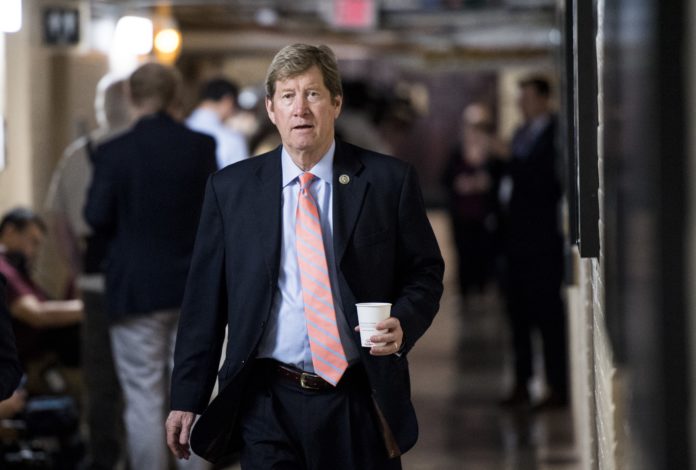This article, written by Fred Barnes, was originally published by the Weekly Standard. Click below to read the full article.
* * * *
This is the saga of Jason Lewis. For a quarter-century, the Minnesota congressman was a talk-radio host. He started in the Minneapolis-St. Paul metropolis and did a spell in Charlotte before returning to the Twin Cities. I was a guest on his show a few times. As best I recall, they were frisky discussions of political issues, a notch or two livelier than the normal talk radio stuff.
In 2016, Lewis decided to run for the House of Representatives from Minnesota’s Second District. It’s a swing district that leans slightly Republican. It consists of the fast-growing suburbs south of the Twin Cities that meld into farmland. The seat was open. John Kline, the influential chair of the House Education and Workforce Committee, was retiring.
Kline wasn’t keen on being succeeded by a rambunctious radio host like Lewis. “I liked to provoke,” Lewis says. “I liked to raise eyebrows. I liked to tell them something they didn’t already know.” Kline backed businesswoman Darlene Miller. But Lewis had campaign experience, having run for a House seat in Colorado in 1990 (he lost badly), and Miller didn’t. Lewis won the primary, 49 percent to 31 percent.
Democrats, it turned out, were ready for Lewis—or thought they were. He specialized in economic issues, but he was just as fluent on social issues like gay marriage. Lewis insisted marriage was a state matter and defended the Defense of Marriage Act (DOMA), the effect of which was that same-sex marriage approved in one state wouldn’t be recognized in other states. He continued to defend DOMA after it was nullified by the Supreme Court.
To put it mildly, that was controversial. Lewis says someone had obtained tapes of his radio broadcasts and taken them out of context to make them sound as shocking as possible.
Word of all this got back to Washington in a heartbeat. The Democratic Congressional Campaign Committee vowed to force Lewis to “defend every sexist, racist, misogynistic and outrageous comment he’s ever made.”
The Atlantic called him “Minnesota’s Mini-Trump” and a “hard-right radio provocateur.”
Lewis was unruffled, but Republican strategists and campaign staffers were shaken. They feared other GOP candidates would be tarnished and made to answer for his comments. Most of all, they didn’t know how to handle him. But all that didn’t matter. Democrats thought it wise to link Lewis to Trump. That didn’t matter either.
Lewis won that fall. He beat Democrat Angie Craig, 47 percent to 45 percent, aided by an independent candidate who got 8 percent. (Craig had outspent Lewis by four-to-one.) Trump won the district too—running a percentage point behind Lewis.
Then came the big shock.
















